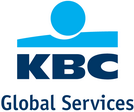DERIN - Digital Education Readiness in Maritime and Inland Navigation - 2020-1-RO01-KA226-VET-095726
- Детайли
- Категория: НОВИНИ НОВИНИ
- Публикувана на 14 Юни 2021 14 Юни 2021

Programme: Erasmus+
Action: Key Action 2 (KA2)
Call: Strategic Partnerships in response to COVID-19_KA226
Lead Partner: Romanian Maritime Training Centre - CERONAV
Partnership:
- Faculty of Transport and Traffic Sciences - Croatia
- Technical University of Varna - Bulgaria
- STC Group – Netherlands
- Latvian Maritime Academy - Latvia
- Estonian Nautical School - Estonia
Associated Partners:
- Volga State University of Water Transport - Russia
- Kongsberg Digital As, Maritime Simulation - Norway
- Wärtsilä Voyage - Ireland
Period: 24 months (01.03.2021 – 28.02.2023)
Total budget approved by the National Agency: 179.995 euro
Project summary:
In times when intelligent learning has been accelerated by the COVID-19 pandemic and there is a massive shift towards the online environment in global learning, the position of any sector depends on how much they embrace digitalisation.
Consequently, how education and training will cope with the requirements of the present times and how they will prepare in order to be futureproof are issues that can be addressed only if relevant institutions react and unite in partnerships able to put together their knowledge, experience and resources.
Therefore, aiming at improved capacity and efficiency of E&T institutions to provide digital training, 6 partners in as many EU countries (Romania, Bulgaria, Croatia, Netherlands, Latvia and Estonia) saw rather the opportunity than the setbacks of this challenging period and decided to work together for improved digital training and assessment of waterborne transport personnel through an increased level of digital competences of VET teachers/ trainers, realising that current needs and challenges in terms of capacity of educators to deliver digital education are quite common and the joint solution is developing the right tools and adapting the proper digital solutions with the support of technology providers as Associated Partners and stakeholders.
Through a more efficient uptake of digital technologies for teaching and learning in a consolidated manner and not just in certain corners of the EU, high quality results of the educational process can be maintained even if the traditional “in classroom” environment cannot be used 100% of the time. As the theoretical part of the training is almost completely available in digital format, the focus of DERIN project will be for the practical training, or at least a certain percentage of it, to be shifted in the digital environment using the right tools, considering the vast diversity available and the fast pace the technology advances in the industry.
The partnership consists of a VET school, three maritime and inland waterway training centres on their own or as part of maritime academies/ technical universities, a worldwide operating educational and research institution and a higher education institution.
Coordinated by CERONAV, the partners will select the relevant learning modules adaptable to innovative multimedia tools, applications and resources, will test and familiarize themselves with the mentioned tools followed by the development of corresponding multimedia learning materials (curriculum, teaching methods, procedures, role-play scenarios, videos etc.) as a toolkit for practical training including also guidelines for trainers.
For a highly relevant outcome, three learning teaching training activities will take place. A special training activity for students will allow trainers to include feedback from the end-users and trainees to gain knowledge and competence for the new working environment. As use of simulators in maritime and inland navigation education and training is an essential component for developing trainees’ competencies necessary for the job, a special attention will be given to developing innovative and easily accessible course modules via open educational resources on the internet.
Specially designed to boost capacity of VET teachers and trainers, focussing on their digital competencies and capacity to upskill for innovative online resources and tools, their usage and design, the project will develop a toolkit for teachers/ trainers including newly developed materials.
To take a step further and have a larger scope, policy recommendation and guidelines will be developed to focus on the impact and legacy of the project targeted towards sector’s stakeholders at the local, regional, national and European level concerned with maritime and inland waterway transport and the successful design and implementation of e-learning programme.
The large sector of waterborne transport has to be taken into consideration, with all its implications in EU economy as training is always fundamental in an industry so well regulated and standardized at international level.
Dissemination activities will be rolled out in order to raise awareness, increase knowledge, influence attitude and finally change behaviour of interested and relevant parties including at least one Multiplier Event in each of the six partner countries. Quality monitoring and control activities will ensure high standard outcomes and sustainable results to be transferred in different education areas and, with the support of Associated Partners to reach larger territories.
The European Commission support for the production of this publication does not constitute an endorsement of the contents which reflects the views only of the authors, and the National Agency and Commission cannot be held responsible for any use which may be made of the information contained therein.












